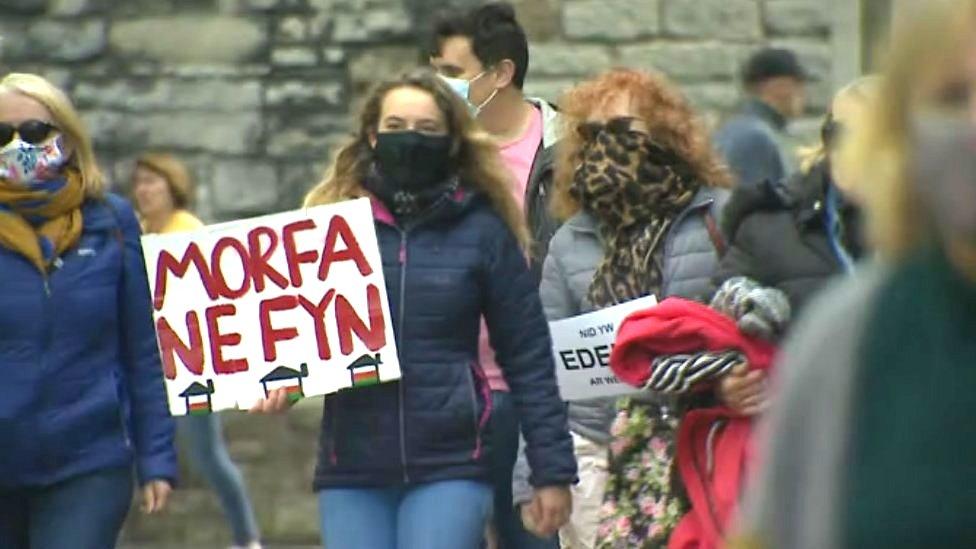Covid-19: Working from home leads to house price rise in Wales
- Published
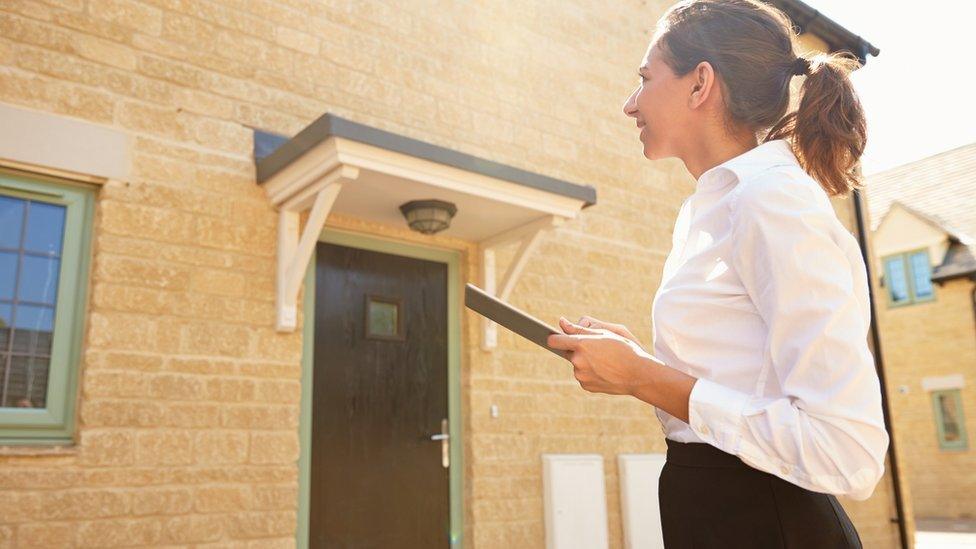
Despite fears over jobs and the economy, people have continued buying new homes
While it may sound "somewhat implausible", Welsh house prices have risen recently despite the pandemic, according to the Principality.
The building society puts it partly down to people looking for bigger homes with more space as they adjust to the "new normal" of working from home.
Rises are set to continue in 2021, according to house price index Zoopla, external.
It predicts sale values will increase by 2% in Wales, compared to 1% across England.
The Principality's chief risk officer Mike Jones said fears over jobs and the economy may make first-time buyers reluctant to "put a first step on the ladder".
But overall, he believes the furlough extension and schemes such as mortgage deferrals are two factors keeping the sector buoyant.
"It is also potentially the desire for a lifestyle change for some who, during lockdown, have realised that it is possible to work from home, avoiding the necessity to travel to work on a daily basis," he added.
"The demand for larger homes with additional space, including outdoor areas, has consequently risen however, and with little new supply coming to the market, prices also rose rapidly."
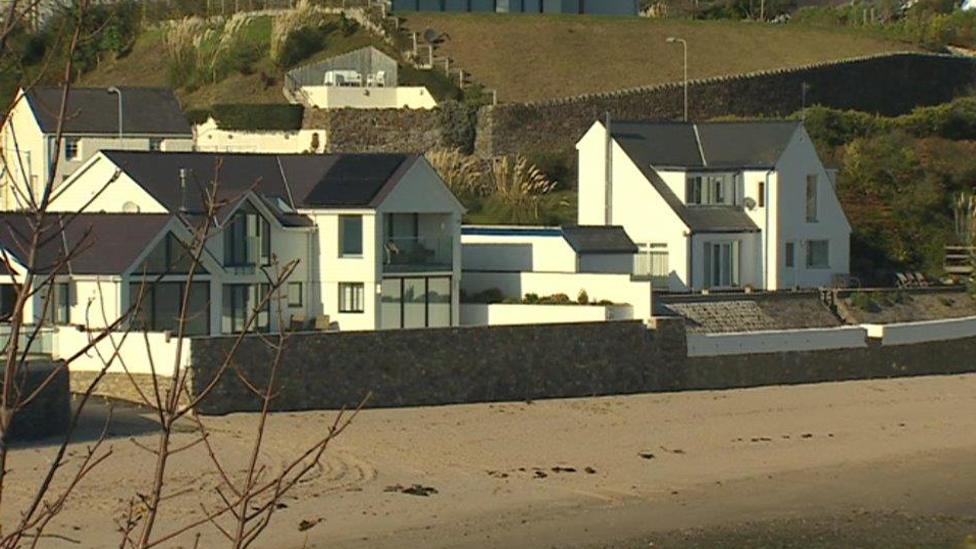
Areas such as Abersoch in Gwynedd saw house prices jump
How has Covid-19 affected house prices?
When Wales' first lockdown ended in June, house prices rose by 3% across Wales' 22 local authority areas to £196,165.
The Principality's house price index for July to September showed sales rose by 2.2% compared to the quarter before - however, they were down by 58% on the same period in 2019.
In September, six local authority areas reached a new record average price - Bridgend (£190,948), Cardiff (£247,030), Carmarthenshire (£172,708), Gwynedd (£198,279), Newport (£213,660) and Powys (£222,992).
Apart from Cardiff, they are all among the council areas with the highest proportion of detached or semi-detached homes, indicating to the Principality the rise is being driven by people looking for spacious homes suited to lockdown living.
The highest increase was in Gwynedd, where house prices rose by 14.6%, with the price of an average detached home rising from £250,000 to £280,000 - this was pushed up by the highest sale of the year for £1.2m.
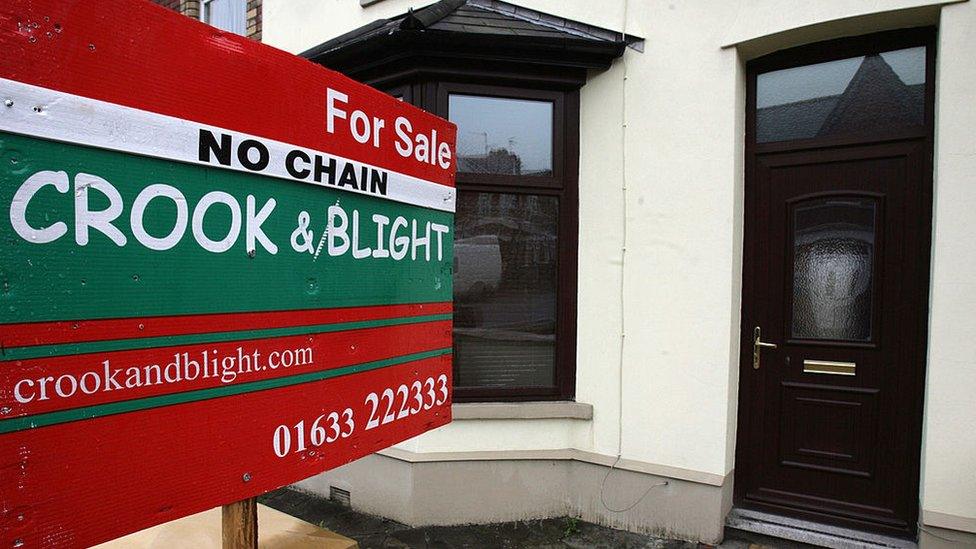
House prices are predicted to continue rising in 2021
Mr Jones added: "Covid is likely to have dented consumer confidence and fears over job security may mean that many prospective buyers will be reluctant to either put a first foot on the housing ladder, or indeed take a step up."
However, he said help-to-buy schemes and the creation of affordable homes "gave cause for optimism" looking ahead.
Zoopla predicts Wales will record the strongest house price growth of all UK areas next year, partly due to pent-up demand because of a longer lockdown earlier in 2020.
Director of research and insight Richard Donnell called it a "rollercoaster year" that was ending on a strong note, with house price growth hitting a three-year high and set to increase further.
"There are some challenges ahead as the country battles the impacts of the pandemic on the economy and day-to-day life," he added.
'Covid-19 has changed how people view their homes'
"The impact on the housing market is less than in previous downturns as sales volumes have already fallen in recent years and affordability levels are far from over-stretched."
Monmouthshire Building Society's chief operating officer Dawn Gunter called it an "unpredictable year" but agreed coronavirus had changed how many people view their home.
"Lockdowns have also meant members have spent more time than usual at home, with the home becoming both a personal and professional space," she said.
"Lots of people took the time to consider what the future looks like, how their home environment supports a positive work-life balance, whilst also considering its location and surroundings."
She also said the building society had seen "a surge in first-time buyers", adding: "We know the average age of a first-time buyer is now in their 30s, so 2020 may have been the target year to buy a first home for many."
- Published1 July 2020
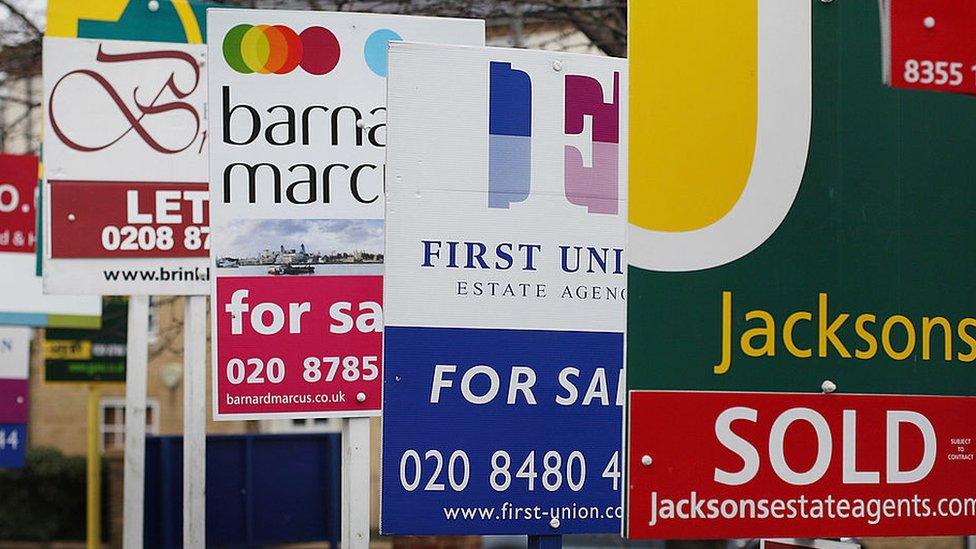
- Published27 September 2020
